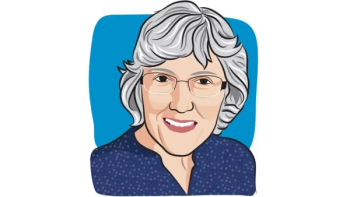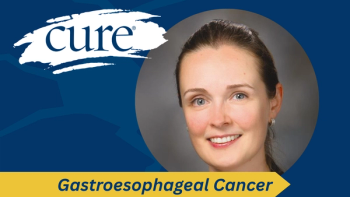
Declining Concern about HPV Vaccine and Sexual Activity
Concern about vaccine safety and perceived lack of necessity remain the main reasons parents give for not having their teenage daughter vaccinated against HPV.
Lack of knowledge and provider recommendation replaced parental concern about their daughters’ lack of sexual activity among key factors behind continued slow uptake of the human papillomavirus (HPV) vaccine, according to a study presented at the Society of Gynecologic Oncology 48th Annual Meeting in National Harbor, Maryland.
In 2010 the third most common reason parents gave for not vaccinating their teenager was lack of sexual activity, but in 2014, that concern dropped to the bottom of the 5 most commonly cited reasons for failure to vaccinate. During the same time period, lack of knowledge about vaccine and lack of healthcare provider recommendation moved from the bottom of the list to the middle.
Concern about vaccine safety and perceived lack of necessity topped the list at both points in time, reported Anna Beavis, M.D., a gynecologic oncology fellow at Johns Hopkins Hospital in Baltimore.
“Our results demonstrate that safety and perceived lack of necessity, as well as lack of knowledge, make up 50 percent of the reason why parents don’t initiate HPV vaccination,” said Beavis. “The results also demonstrate that concern about the vaccine and its connection with sexual activity are less important to parents and that these concerns decreased over time.
“Healthcare providers should not feel dissuaded from recommending HPV vaccine simply because they feel the parents don’t want to discuss sexual activity,” she added.
Preliminary analysis of data from the 2015 survey showed that failure to vaccinate was associated with white race, younger age and socioeconomic status above the poverty level. An HPV message targeted to those demographic characteristics is needed, said Beavis.
Given the strong association between cervical cancer and HPV infection, universal uptake of the nine-valent HPV vaccine could prevent 90 percent of all cervical cancer. Despite HPV vaccines’ demonstrated efficacy for preventing infection rate, uptake in the United States has lagged behind other Western nations.
In 2007, the first full year after HPV vaccine was introduced in the U.S., 12 percent of adolescent girls were vaccinated. By 2014, the rate had increased to about 60 percent, still well below the 80 percent target established in the Healthy People 2020 initiative. In contrast, HPV vaccination rates in Australia, which has a school-based vaccination program, have exceeded 80 percent since 2007, said Beavis.
Explanations for the low uptake rate in the U.S. remain incomplete. Physician recommendation has a strong influence of vaccination rates, but recommendation rates vary by specialty, geography and other factors. Access to health care also affects uptake. Previous studies have shown that providers who have low rates of recommendation feel the need to discuss sexual activity with parents before recommending the vaccine for a child, which has contributed to the low uptake.
Studies of parental attitudes toward HPV vaccine have yielded conflicting results. Whether attitudes have changed over time has not been studied extensively, providing a rationale to examine the issue in greater detail. Beavis and colleagues hypothesized that recent data would show that parental attitudes about vaccine safety and sexual issues has decreased.
The study involved data from the Centers for Disease Control’s National Immunization Survey-Teen. The survey tracks national vaccination trends and elicits information about reasons for not initiating vaccination in children and teenagers. Providers are contacted to verify vaccination-related data. About 35,000 households are contacted annually, the data are used to estimate national trends in vaccination.
The analysis was limited to households with girls aged 13 to 17. The analysis covered 85,269 individual surveys conducted during 2010 to 2014. Provider verification was available in 49,345 cases, which showed that HPV vaccine had not been initiated in 22,642 cases and that 26,703 girls had received at least one dose of HPV vaccine. Of the unvaccinated group, 12,401 parents indicated no intention to initiate HPV vaccination.
In the subgroup not intending to initiate vaccination, the median age of the child was 15. Race/ethnicity was white in 70 percent of cases, two thirds had private insurance and 89 percent had income that exceeded the poverty level.
The vaccine initiation rate increased gradually but steadily from 49 percent in 2010 to 60 percent in 2014. Regarding reasons for not initiating the vaccine, the top two reasons in 2010 were concerns about vaccine safety/side effects (23 percent) and perceived lack of need/necessity for vaccination (20 percent). As the third most common reason, parents said their daughters were not sexually active and did not need the vaccine (18 percent). Lack of knowledge (14 percent) and lack of provider recommendation completed the list (9 percent).
In 2014, perceived lack of need/necessity topped the list, followed by safety concerns (17 percent), lack of knowledge about vaccines and vaccination (14 percent), lack of recommendation (10 percent) and slipping to the bottom of the list (9 percent), the belief that the vaccine was not necessary because children were not sexually active.
Comparison of 2010 and 2014 responses showed statistically significant differences for safety/side effect concerns, perceived lack of necessity, beliefs about sexual activity and lack of provider recommendation.



